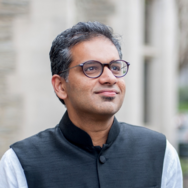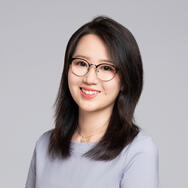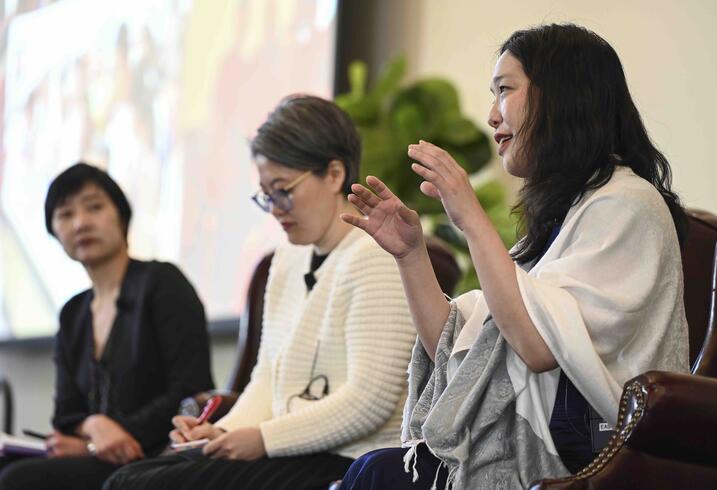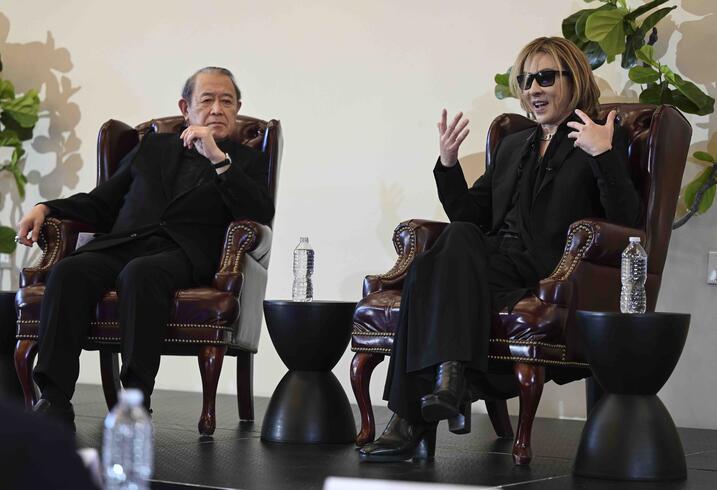APARC Names 2025 Incoming Fellows
Stanford University’s Walter H. Shorenstein Asia-Pacific Research Center (APARC) is delighted to welcome a new cohort of fellows joining us starting in summer 2025.
APARC offers multiple prestigious fellowship opportunities for Stanford doctoral students, emerging scholars of exceptional promise, and accomplished faculty and mid-career experts researching contemporary Asia topics. Supported by these fellowships, our incoming fellows will complete dissertation research, work on book manuscripts, undertake new research projects, and engage with the center's scholarly community.
Meet the Fellows

Minyoung An
Minyoung An is a doctoral candidate in sociology at the University of Arizona. Her research lies at the intersection of gender, transnational migration, and knowledge production, combining statistical modeling, computational methods, and in-depth interviews.
Her dissertation analyzes gendered migration patterns in South Korea and among international PhD students in the U.S., revealing how gender inequality in countries of origin produces distinct selection effects and return migration dynamics. She also studies academic career trajectories and prestige hierarchies, exploring how gender and national origin affect integration into global academia.
At the Stanford Next Asia Policy Lab, she will pursue two projects that extend this research agenda: one using computational analysis of social media data to examine gendered migration intent, and another investigating the academic trajectories and institutional reception of international scholars from East Asia. Through these projects, she aims to advance understanding of how transnational inequalities shape global mobility, opportunity, and inclusion.

Gaea Morales
Gaea Morales is a political scientist specializing in global environmental governance, with a focus on the intersection of global and local climate politics in Southeast Asia. Gaea’s dissertation and book project, “Agents of Mass Construction: How Cities Localize through the Sustainable Development Goals,” asks why and how cities choose to translate global agreements to shape local policy, a process known as “localization.”
The project explains the motivations and mechanisms by which cities localize environmental norms using case studies of three climate-vulnerable coastal capitals: Jakarta, Indonesia; Metro Manila, Philippines; and Bangkok, Thailand. Drawing from a global dataset of Sustainable Development Goal localization and a year of fieldwork across Southeast Asia, the project illuminates how cities engage in a dynamic process of policy implementation that is locally driven and globally informed.
At APARC, Gaea will revise her book project and adapt her dissertation into an article manuscript. She will also pursue further projects that cross-cut issues in local and global governance, the political economy of climate and the environment, and human rights. She is especially interested in urban disaster resilience, inclusive climate finance, and environmental migration and security within and beyond the Asia-Pacific region.
Gaea completed her master's degree and doctorate in political science and international relations at the University of Southern California. She holds a bachelor's degree in diplomacy and world affairs and in French studies from Occidental College.

Isabel Salovaara
Isabel Salovaara is a doctoral student in Stanford's Department of Anthropology. Her dissertation, “Engendering the State: Aspiration, Government Jobs, and the Coaching Industry in Bihar, India,” analyzes the effects of organized exam preparation systems on urban life, gender and kin relations, and the politics of (un)employment. Through ethnographic engagement with young people preparing for government recruitment examinations in India, Isabel's work investigates the social life of "shadow education" – a burgeoning industry across much of Asia. Her research complicates the common framing of shadow education as a social ill by showing how young women and members of disprivileged caste groups harness India's coaching institutes to pursue forms of security and independence for themselves and their families.
Isabel received a bachelor's degree in history from Harvard University and a master's degree in social anthropology from the University of Cambridge.

Teren Sevea
Teren Sevea is the Prince Alwaleed Bin Talal Associate Professor of Islamic Studies at Harvard Divinity School. He is a historian of Islam in Southeast Asia, with research focusing on Islamic texts, oral traditions, and devotional practices across the Malay-Indonesian world and the broader Indian Ocean. His first book, Miracles and Material Life: Rice, Ore, Traps and Guns in Islamic Malaya (Cambridge University Press, 2020), was awarded the 2022 Harry J. Benda Prize by the Association for Asian Studies.
While at the National University of Singapore and Stanford as a Lee Kong Chian Fellow, Sevea is completing his second monograph, Singapore Islam: The Prophets’ Ports and Sufism Across the Oceans. The book explores the Sufi networks that connected Singapore to religious communities across Asia and Africa, highlighting the roles of miracle workers, reformist scholars, royals, and lay believers. Drawing on multilingual texts and oral histories, the project examines how sacred sites, including ruins and relocated graves, serve as living archives of an Islamic past often overlooked by official narratives. The work combines historical and ethnographic approaches to reveal how Singapore’s devotional communities preserve and reimagine Islamic memory across generations.

Gavin Shatkin
Gavin Shatkin is a professor of public policy and architecture at Northeastern University. He is an urban planner who works on the political economy of urbanization and urban planning and policy in Southeast Asia. His recent research has addressed the role of state actors in the emergence across Asia of very large, developer-built "urban real estate megaprojects," the implications of climate change-induced flood risk for questions of property rights in coastal cities, and the geopolitical dynamics shaping the "infrastructure turn" in urban policy in large Southeast Asian cities. His articles have been published in the International Journal of Urban and Regional Research, Urban Studies, Annals of the Association of American Geographers, and numerous other journals in urban studies, planning, geography, and Asian studies. His most recent book is Cities for Profit: The Real Estate Turn in Asia’s Urban Politics (Cornell, 2017).
While at APARC, Gavin will primarily focus on a book manuscript examining the implications of Cold War political legacies for contemporary urban development and planning in Southeast Asia. The book focuses on three megalopolises – Jakarta, Bangkok, and Metro Manila – that were the capitals of nations that saw the consolidation (with American support) of authoritarian regimes during Southeast Asia’s "hot Cold War" in the 1960s and 1970s. The book examines the legacies of Cold War-era law, policy, and political discourse in three areas: property rights and land management, the production of knowledge about urbanization, and definitions of urban citizenship and belonging.

Theara Thun
Dr. Theara Thun is a postdoctoral research fellow at the Faculty of Education, University of Hong Kong, funded by Hong Kong’s Research Grants Council. His research interests include intellectual history, ethnic politics, and post-war education, with a particular focus on Cambodia and Southeast Asia.
He holds a doctorate in history from the National University of Singapore through a joint doctoral program with the Harvard-Yenching Institute (Harvard University). He was the recipient of the 2019 Wang Gungwu Medal and Prize for the Best PhD Thesis in the Social Sciences/Humanities.
His first book, Epistemology of the Past: Texts, History, and Intellectuals of Cambodia, 1855-1970 (University of Hawaii Press, 2024), critically explores scholarly debates of Cambodian, Thai, and French intellectuals. The book presents one of the largest original indigenous manuscript collections ever assembled in Southeast Asian Studies scholarship. It argues that precolonial historical scholarship persisted alongside Western historical writings, leading to the development of a unique body of knowledge with its distinct epistemology.
At APARC, Dr. Thun will work on his second book project, which explores post-war intellectual and higher education development in Cambodia. The project seeks to understand how Cambodia’s universities have transformed following the destruction of the entire educational system and the massacre of most teaching personnel during the Khmer Rouge regime between 1975 and 1979.

Yuli Xu
Yuli Xu is a doctoral student in economics at the University of California, San Diego. Her research focuses on labor and health economics, with particular interests in how female labor force participation and fertility decisions are influenced by labor market institutions and past birth experiences. In her thesis, "Gendered Impacts of Privatization: A Life Cycle Perspective from China," she demonstrates that the reduction in public sector employment has widened the gender gap in the labor market while narrowing the gender gap in educational attainment. She also finds that this structural shift has delayed marriage among younger generations. In another line of research, Yuli examines the effects of maternity ward overcrowding. She finds that overcrowding reduces the use of medical procedures during childbirth without negatively impacting maternal or infant health. While it has no direct effect on subsequent fertility, she shows that mothers, especially those with a college degree, are more likely to switch to another hospital for subsequent births after experiencing overcrowding.
During her time at APARC, Yuli will further investigate patient-physician relationships in the Chinese healthcare system, where patients have considerable flexibility in choosing their doctors at each visit. She will explore the persistence of these relationships and examine how patients respond when their regular doctors are temporarily unavailable.
Yuli holds a bachelor's degree in economics from the University of International Business and Economics in China.
Read More

The Center’s new cohort of seven scholars pursues research spanning diverse topics across contemporary Asian studies.

















































